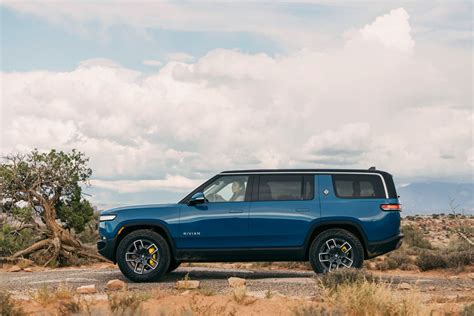Volkswagen’s announcement to invest up to $5 billion in Rivian represents a major milestone for the electric vehicle (EV) industry. This sizable commitment comes at a time when Rivian has been grappling with financial and production challenges, reminiscent of Microsoft’s lifeline to Apple in 1997. For Volkswagen, a strategic alliance with Rivian could be a game-changer, allowing them to leverage Rivian’s innovative EV technology and strengthen their foothold in the burgeoning electric pickup and SUV segment. Meanwhile, Rivian obtains not just financial backing but also a crucial vote of confidence that may sway customers, third-party developers, and investors.
Rivian has often been dubbed the ‘Apple of EVs’ due to its high-quality design and premium market focus. However, the comparison takes on a deeper dimension when viewing Tesla as the ‘Android’ of the automotive world. While simple comparisons paint Tesla as a tech pioneer, some commentators argue that Tesla might parallel older brands like Nokia or Blackberry if it fails to adapt to rapid advancements from competitors such as BYD. This analogy underscores the rapidly evolving landscape of the EV market, where innovation, not just legacy, dictates success or failure.
The dialogue around BYD and Chinese EV manufacturers highlights the formidable competition that American and European automakers face. Comments elucidate that BYD’s technology is advancing at an alarming pace, challenging other companies with groundbreaking innovations like ten-minute full-charge batteries. However, the feasibility of such innovations hinges on overcoming significant infrastructural and technological challenges, such as providing megawatt circuits at public charging stations. Capacitors could play a pivotal role here, representing one of many technological breakthroughs shaping the future of EVs.
Tesla’s dominance in the automotive world has been questioned due to persistent issues with their ‘self-driving’ features and user interface deficiencies. Rivian and other competitors are potentially capitalizing on these gaps. Rivian has the opportunity to distinguish itself through superior software and solid manufacturing. Volkswagen’s investment could bring much-needed improvements in software infrastructure, alleviating concerns over usability and enhancing user experience. Rivian’s current reluctance to integrate CarPlay or Android Auto is another area needing review if they aim to deliver a seamless and user-friendly experience.
Volkswagen’s investment isn’t merely about financial support; it’s a strategic move to acquire cutting-edge technology and leapfrog competition in the EV market. Rivian’s capabilities in software development offer Volkswagen an edge, particularly with their intent to enter the American market through vehicles like electric trucks and SUVs, segments Rivian excels in. The collaboration may also help Rivian extend its reach and improve production efficiency, leveraging Volkswagen’s established manufacturing prowess. Ultimately, this partnership embodies a symbiotic relationship where both entities aim to thrive amidst fierce global competition.
As we look forward, Volkswagen and Rivian’s collaboration might set a precedent for future alliances in the automotive industry. With traditional car manufacturers increasingly recognizing the need for robust software and electrification expertise, such partnerships could become the norm. It’s clear that the road ahead involves overcoming significant challenges, particularly in battery technology and infrastructure, but the direction is set. Volkswagen’s $5 billion bet on Rivian is a testament to the shifting priorities within the industry—the future is undeniably electric, and it’s moving fast.


Leave a Reply